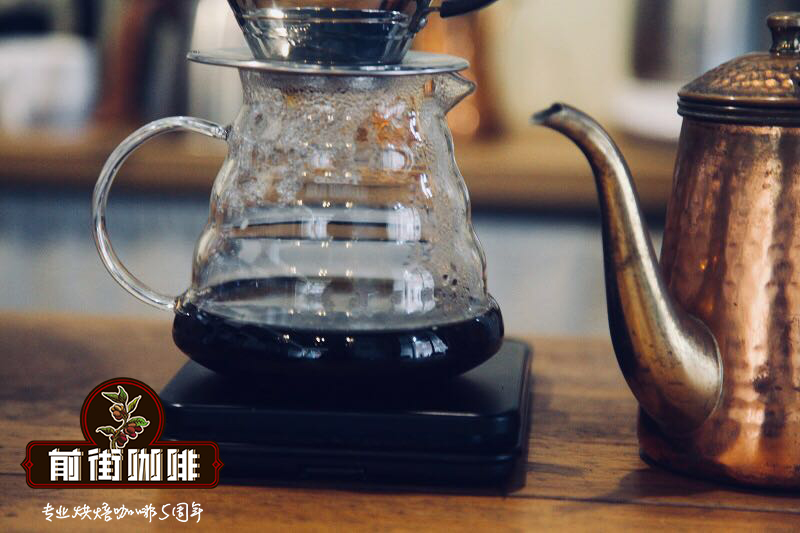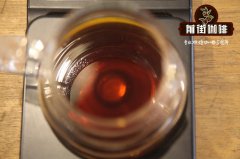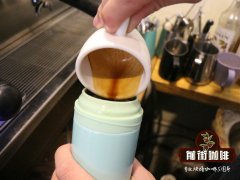Indonesian Coffee Blue Mountain Indonesia-- introduction to Toraya Coffee

Professional coffee knowledge exchange more coffee bean information please follow the coffee workshop (Wechat official account cafe_style)
The Tanatolaya people on the island of Sulawesi grow exquisite Toraya coffee beans. This coffee is a multidimensional coffee grown in the northern plateau of South Sulawesi. Its ripe fruit is distinguished by its rich flavor and the color of dark chocolate. The Torayans produce two kinds of coffee beans, Arabica and Robusta. Toraya coffee has strong mustic fruit aromas and simple sweetness. For people who hate bitter coffee, this kind of coffee is the best choice, because when you taste it, the bitterness of the first mouthful will soon disappear strangely, leaving a wonderful pleasure in your mouth.
Sulawesi (Siribes) was deeply influenced by Dutch rule from 1605 to World War II; the Dutch East India Company controlled the trade of Sulawesi in 1669; in the mid-1600s, the Dutch built Fort Rotterdam in Urong Pandang (now known as Wangkassi), and it was not until 1905 that the whole island was completely conquered and included in Dutch East India In the 1700s, the East India Company controlled all coffee production in Indonesia and introduced Arabica coffee (Tibica seed) to Sulawesi in 1750.
It takes a while to travel from Minneapolis to Tanatolaya in Sulawesi, Minneapolis-Tokyo-Singapore-Jakarta-Wangkasek, and then an eight-hour drive north to Rantepao in Tanatolaya, which is simply the most beautiful place in the world, full of green, rice paddies, a tranquil atmosphere, and traditional high-footed boathouses (Tongkonan Houses) everywhere. The house is engraved with special Toraya patterns as decoration.
Indonesian coffee traditionally uses Giling-Basah to treat raw beans, or wet plucking as in Sumatra; Toya, a joint venture between Japan and Indonesia, introduced the traditional Central American washing method to Sulawesi in 1976.
Toako owns Pedamaran Farm, which is located at 900-1250 meters above sea level. It buys raw beans from small coffee farmers (humidity is about 40%). These coffee farmers usually grow coffee at 1200-1800m above sea level. After the raw beans are quickly sent to Pedamaran Farm, they are placed in an elevated bed to dry at the farm's processing plant. If coffee farmers want to sell their raw beans to Toako, they must provide proof of raw bean grade, including details of selective harvesting, storage, transportation, humidity, etc.; coffee farmers need to apply for coffee identity cards to sell coffee on weekly market days in the Tanatolaya area. This batch of coffee is planted at a higher altitude.
Most of the coffee in Tanatolaya is a S795 variety, which is a Tibica hybrid, which once again proves how deeply the variety affects the flavor of coffee. Indonesia has a very large number of East Timorese species, which is a cross between Robusta and Arabica, but Tanatolaya has successfully retained a higher quality coffee variety.
In 2010, Sulawesi received twice as much rainfall as in previous years, reducing the 2011 harvest by 70%, and it was almost impossible to buy Sulawesi coffee during the harvest season.
Toraya Coffee, known as Indonesian Blue Mountain Coffee, has a brighter sour aroma than Mantenin, and the sweet aroma of caramel brings cinnamon chocolate flavor. It is one of the best coffee in Indonesia. It has a dense taste and is very popular with elegant coffee lovers.
Important Notice :
前街咖啡 FrontStreet Coffee has moved to new addredd:
FrontStreet Coffee Address: 315,Donghua East Road,GuangZhou
Tel:020 38364473
- Prev

Bali coffee Bali gold coffee introduction.
Professional coffee knowledge exchange More coffee bean information Please pay attention to coffee workshop (Weixin Official Accounts cafe_style) Bali coffee trees grow in the central and northern high mountains at an altitude of 1000-2000 meters. Due to the cool and foggy area, it is suitable for coffee tree growth. Bali "Golden Coffee" thus emerges, with an average annual output of 8000 tons. There are Chinese in Nusa Dua
- Next

The difference between espresso and American coffee the standards and characteristics of espresso
Professional coffee knowledge exchange more coffee bean information Please follow the coffee workshop (Wechat official account cafe_style) to understand the difference between American coffee and Italian coffee, you must first understand the difference in brewing. American coffee, what most people can understand is the American drip filter coffee machine that is common in small household appliances. Put the coffee powder in the filter cup, plug it in, turn on the switch, and it will drip down automatically.
Related
- Beginners will see the "Coffee pull flower" guide!
- What is the difference between ice blog purified milk and ordinary milk coffee?
- Why is the Philippines the largest producer of crops in Liberia?
- For coffee extraction, should the fine powder be retained?
- How does extracted espresso fill pressed powder? How much strength does it take to press the powder?
- How to make jasmine cold extract coffee? Is the jasmine + latte good?
- Will this little toy really make the coffee taste better? How does Lily Drip affect coffee extraction?
- Will the action of slapping the filter cup also affect coffee extraction?
- What's the difference between powder-to-water ratio and powder-to-liquid ratio?
- What is the Ethiopian local species? What does it have to do with Heirloom native species?

